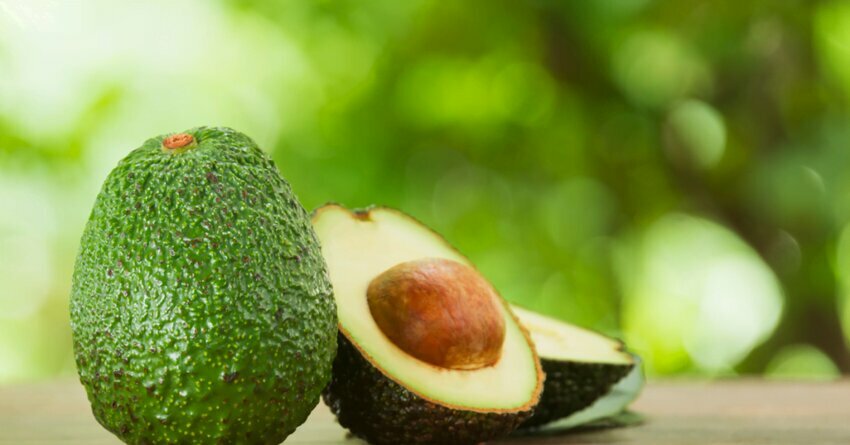Staff Writer

(Credit: Canva Pro)
Mission Produce, Inc. has released its third annual sustainability report, “Finest for the Future,” which highlights the Company’s global sustainability story during fiscal year (FY) 2022.
Steve Barnard, Chief Executive Officer of Mission, said, “For 40 years, we have invested in sustainable practices to protect our land, preserve our resources and support the health and safety of our people. We strive to create a positive impact not only for our company but for the communities and environments in which we operate.”
Mission Produce's 2022 Sustainability Report
The sustainability report details Mission's operating procedures, projects, and achievements, and reports on the Company's global use of resources. Below are some of Mission's sustainability highlights for FY 2022.
People:
Charitable donations increased by 450% from FY 2020 to FY 2022. Contributing to causes supporting children, families, and agriculture education. In 2022, Mission invested significantly in infrastructure developments in La Libertad, Peru, supporting the renovations of several public buildings and the construction of a bypass for clean drinking water. These advancements aim to improve the quality of life for the communities surrounding Mission's Peruvian field and packhouse operations.
Diversity Equity & Inclusion:
- Formed a partnership with the International Fresh Produce Association to launch a DE&I certification course for its US and Canadian employees. This program aimed to enhance the professional development of their workforce and educate them on creating an inclusive culture and eliminating unconscious bias.
- Partnered with a nationally recognized alternative basic education center in Peru to provide free virtual and in-person courses, on-site teacher visits, and additional out-of-class support for their packhouse personnel.
- United States
- Held its annual philanthropic golf tournament to support the Mission Produce Foundation, which donates 100% of event proceeds to charitable organizations. Sponsors donated funds to the American Heart Association and Casa Pacifica Centers for Children and Families.
- Mexico
- Supports local food pantries, homeless shelters, the local fire department, and Mexico's postal service. They also provide subsidized childcare and schooling for the children of their packhouse personnel. In December 2022, Mission Produce executed an extensive holiday-giving campaign, which included distributing food packages to underprivileged communities and children pursuing foundational education.
- Peru
- Invested in significant infrastructure developments in La Libertad, Peru, to increase the quality of life of their field and packhouse employees. This includes financially contributing to the construction of a bypass for clean drinking water and remodeling public buildings throughout several districts.
Product:
As part of the Company’s commitment to reducing the environmental impact of its products, Mission has set a goal to reduce the plastic in 50% of the bags packed and shipped globally by FY 2025. In FY 2022, 46% of Mission's bags were made with reduced plastic, and since FY 2021, the Company has saved an estimated 5.4 million grams of plastic, the equivalent of 420,000 plastic bottles.
Food Waste:
Food Safety:
- In 2022, the supply chain verification program expanded by 13% with the inclusion of new vendors and copackers in the supply chain, allowing for enhanced oversight of the fruit from field-to-fork.
Packaging:
- Packaging initiative aimed at reducing plastic in 50% of the bags packed and shipped globally by FY 2025.
- Since 2021, over 5.4 million grams of plastic have been saved, equivalent to more than 420,000 plastic bottles.
Planet:
Water Management:
- Implementing precision farming practices, in California, led to 40% less water per avocado produced compared to the industry average.
Energy & Emissions:
- The California packhouse's solar panels generated 1,676,734 kW hours in 2022, which can power approximately 231 homes for a year.
- Commitment to installing a 90 kW, 6,000 sqft. solar park at the newest, managed ranch in California.
- Avocado trees have the ability to capture global carbon emissions, offering a dual benefit in the fight against climate change.
- Through photosynthesis, converting CO2 into oxygen, and carbon sequestration, avocados create fertile soil by capturing and storing CO2, which is the most produced greenhouse gas.
- It is estimated avocado trees in Peru stored between 12,757-90,961 metric tons of CO2, which is equivalent to at least 21% of the total emissions reported by the business in 2022.
Environmental Stewardship:
- In 2022, nearly 200,000 new trees were planted on Mission-managed farms in Peru, Guatemala, and Colombia, in alignment with the existing ecosystems. The total number of trees planted across all Mission-managed farms worldwide amounts to approximately 2 million.
“Mission's approach to sustainability is strategically designed to focus on the areas and risks most relevant to our business,” said Delanie Beeson, Global Science and Sustainability Manager. “We seek to minimize the impact of our global footprint and consistently evaluate opportunities to implement sustainable practices throughout our operations.”
 (Credit: Canva Pro)
(Credit: Canva Pro)